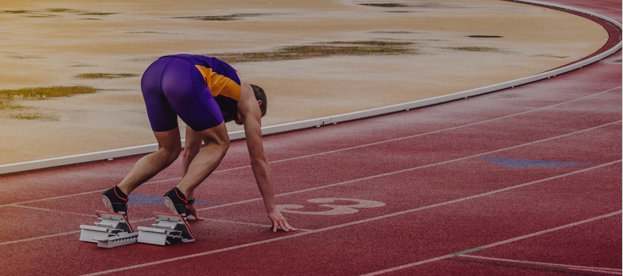I was recently mountain biking with several friends when my friend Kelly said something profound.
One of my friends was asking him how he is able to remain standing (as opposed to sitting down while pedaling) for much of the ride. This requires much more effort and is rather unusual to see.
He replied simply, “If you never train it, you never get it.”
If you have ever ridden a bicycle before, you know that it’s easier to sit down than stand up. To remain standing for a long time while pedaling requires much more stamina and strength.
And if you ride a mountain bike, you know that mountain biking is a full body workout. It requires balance, timing, pressure, core engagement, and a lot of arm strength. And standing up often puts you in a much better position to navigate the trail features more effectively.
When you get tired, the natural instinct is to sit down.
But when you sit down, you can’t really make those subtle adjustments of shifting your body weight forward or backward to keep the front or rear tire pressure, depending on what you need to do in the moment.
One day, Kelly challenged me to remain standing for the remainder of the ride (albeit a short distance).
I discovered something valuable—by finishing most rides standing for even a few minutes, I began to develop the habit. It became easier and more instinctual, and my endurance to stand up on the bike improved.
It only dawned on me later, how relevant this is to almost every other area of life.
Most of the time, I want to avoid things that are hard and uncomfortable. And I do this to my detriment.
By not engaging with the painful and difficult, I weaken my range of abilities to navigate challenges in my life.
When life gets hard, my first thought is usually, “How can I either avoid this, or get through it as quickly as possible to get back to what is easy and comfortable?”
Even if I don’t consciously want this, I know that my brain is lazy and wants the path of least resistance (see link that research clearly supports this). This is my default operating system.
If there is a difficult leadership challenge, my first instinct is not typically “Wow, this is amazing, what a wonderful training opportunity!”
When a relationship gets hard, I don’t usually think, “this is awesome, I am learning so much about my quirks, or dealing with difficult people.”
When parenting is exhausting or frustrating, I don’t typically think, “What a great teachable moment for my child and a chance to stretch my capacity for patience and love.”
But my thinking is changing.
It might be a slow change, but I see improvement.
The more I engage with this subject matter, the more I see it as an essential mindset for all areas of life.
See my prior posts on the well-known related psychological research topics of grit, resilience, deliberate practice, and post-traumatic growth.
Every weightlifter knows that a muscle cannot grow without tearing and resistance.
The resistance is the catalyst and cause for the growth—and without it, we would not improve.
In our culture of microwaves, fast food, Amazon one-click, same day delivery, smartphones, and any other quick fix—I fear that many humans are losing this essential skill of engaging with the difficult, the long, and the uncomfortable.
I think somewhere in the back of my mind I assumed that I would somehow develop the ability to stand while pedaling, without ever doing it. Strangely, time was going by and I wasn’t developing any ability to do so!
So my mindset has changed.
Now, instead of “this is hard I want to stop doing this,” I consciously try to remember that the feeling of discomfort means that I am intentionally developing a broader and important range of skills.
The discomfort actually signals that valuable growth is occurring.
Turn information into action
I would encourage you this weekend to take 15 to 30 minutes to journal about the following questions:
Where in your life are you avoiding discomfort that is essential to your growth?
How important is that ability to the rest of your life path?
What positive outcome could result if you engaged with whatever you have been avoiding?
Remember, if you never train it, you never get it.
Have a great weekend!
Parker
*If you have enjoyed Leadyoufirst.com articles, check out The Next Peak Podcast where Parker co-hosts every other episode.




